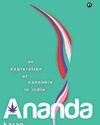
IN 2019, WILDLIFE conservationists, especially those caring for bears, celebrated a very special anniversary—the 10th anniversary of the rescue of the last ‘dancing’ bear from India’s streets. The sloth bear named Raju, who was eight years old at the time, was freed from Chikkaharavalli in Karnataka by Wildlife SOS, an organization dedicated to saving and rehabilitating abused wildlife. The case marked their 628th bear rescue.
This informal roadside entertainment, once rampant on Indian streets, came from a 400-year-old tradition of man’s pursuit of divertissement. The community that primarily made a living from this practice, the Kalandars, once regaled and delighted nobles by making bears perform tricks.
But the story behind the performances is far from pleasurable. Any service derived from animals is made possible only through training practices grounded in deep cruelty. The bears for instance, would be captured as cubs after their mothers were killed. Their muzzles would then be pierced with hot iron rods, and threaded with thick ropes that, when tugged, made the animals jump and prance in pain. This was how Raju too spent his youngest years.
Now 23, Raju has a new name— Adit—and a new address at the Bannerghatta Bear Rescue Centre in Bengaluru, far from the miseries he endured on the streets. His rehabilitation, and that of all captive sloth bears, came after the Kalandars were empowered with new opportunities for education and alternative livelihoods. Kartick Satyanarayan, co-founder of Wildlife SOS, the group that pioneered the project, confirmed to Reader’s Digest that not a single dancing bear can be found in India anymore.
The Cruelty of Captivity
This story is from the June 2024 edition of Reader's Digest India.
Start your 7-day Magzter GOLD free trial to access thousands of curated premium stories, and 9,000+ magazines and newspapers.
Already a subscriber ? Sign In
This story is from the June 2024 edition of Reader's Digest India.
Start your 7-day Magzter GOLD free trial to access thousands of curated premium stories, and 9,000+ magazines and newspapers.
Already a subscriber? Sign In

ME & MY SHELF
Siddharth Kapila is a lawyer turned writer whose writing has focussed on issues surrounding Hinduism. His debut book, Tripping Down the Ganga: A Son's Exploration of Faith (Speaking Tiger) traces his seven-year-long journey along India's holiest river and his explorations into the nature of faith among believers and skeptics alike.

EMBEDDED FROM NPR
For all its flaws and shortcomings, some of which have come under the spotlight in recent years, NPR makes some of the best hardcore journalistic podcasts ever.

ANURAG MINUS VERMA PODCAST
Interview podcasts live and die not just on the strengths of the interviewer but also the range of participating guests.

WE'RE NOT KIDDING WITH MEHDI & FRIENDS
Since his exit from MSNBC, star anchor and journalist Mehdi Hasan has gone on to found Zeteo, an all-new media startup focussing on both news and analysis.

Ananda: An Exploration of Cannabis in India by Karan Madhok (Aleph)
Karan Madhok's Ananda is a lively, three-dimensional exploration of India's past and present relationship with cannabis.

I'll Have it Here: Poems by Jeet Thayil, (Fourth Estate)
For over three decades now, Jeet Thayil has been one of India's pre-eminent Englishlanguage poets.

Orbital by Samantha Harvey (Penguin Random House India)
Samantha Harvey became the latest winner of the Booker Prize last month for Orbital, a short, sharp shock of a novel about a group of astronauts aboard the International Space Station for a long-term mission.

She Defied All the Odds
When doctors told the McCoombes that spina bifida would severely limit their daughter's life, they refused to listen. So did the little girl

DO YOU DARE?
Two Danish businesswomen want us to start eating insects. It's good for the environment, but can consumers get over the yuck factor?

Searching for Santa Claus
Santa lives at the North Pole, right? Don't say that to the people of Rovaniemi in northern Finland